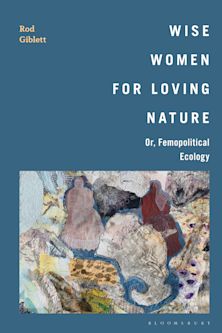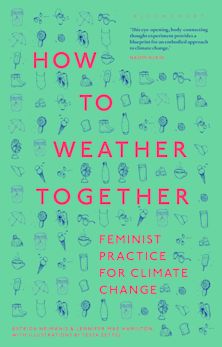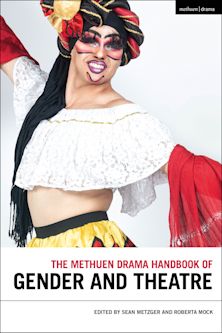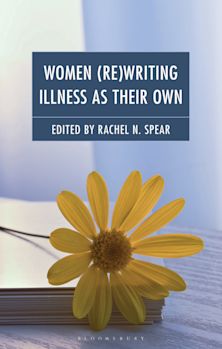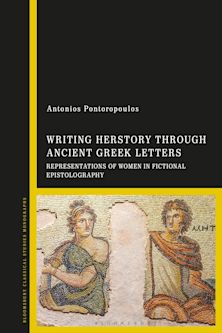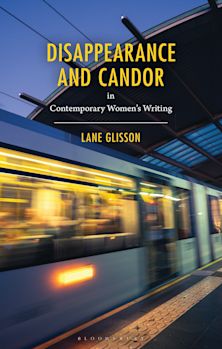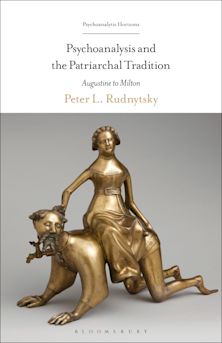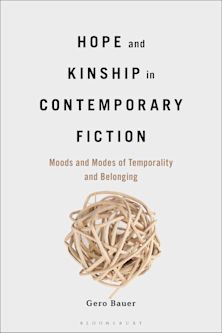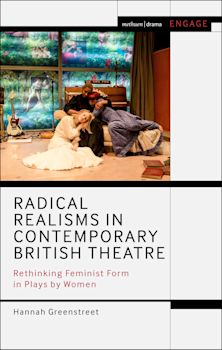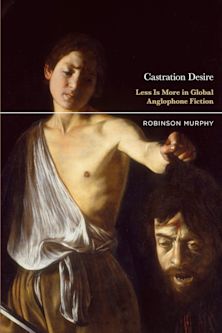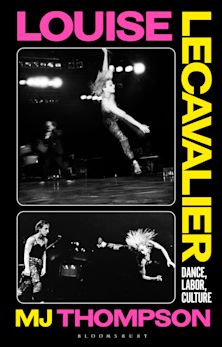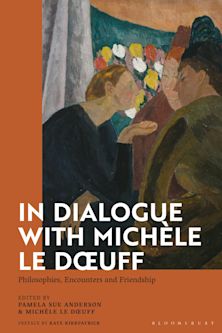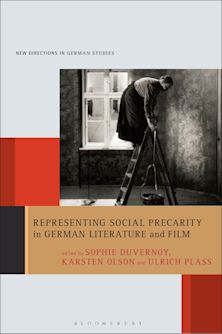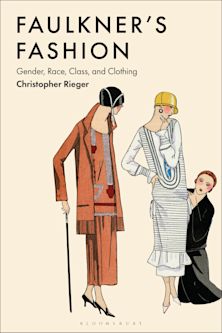- Home
- ACADEMIC
- Literary Studies
- Gender and Sexuality in Literature
- Women's Fiction and Post-9/11 Contexts
Women's Fiction and Post-9/11 Contexts
Peter Childs (Anthology Editor) , Claire Colebrook (Anthology Editor) , Sebastian Groes (Anthology Editor) , Roberta Garrett (Contributor) , Ruzy Suliza Hashim (Contributor) , Emily Horton (Contributor) , Kristine Miller (Contributor) , Jago Morrison (Contributor) , Ana-Karina Schneider (Contributor) , Corina Selejan (Contributor) , Karin Sellberg (Contributor) , Heather Yeung (Contributor) , Noraini Md Yusof (Contributor)
Women's Fiction and Post-9/11 Contexts
Peter Childs (Anthology Editor) , Claire Colebrook (Anthology Editor) , Sebastian Groes (Anthology Editor) , Roberta Garrett (Contributor) , Ruzy Suliza Hashim (Contributor) , Emily Horton (Contributor) , Kristine Miller (Contributor) , Jago Morrison (Contributor) , Ana-Karina Schneider (Contributor) , Corina Selejan (Contributor) , Karin Sellberg (Contributor) , Heather Yeung (Contributor) , Noraini Md Yusof (Contributor)
You must sign in to add this item to your wishlist. Please sign in or create an account
Description
9/11 is not simple a date on the calendar but marks a distinct historical threshold, ushering in the war on terror, various states of emergency, a supposed “clash of civilizations,” and the putative legitimation of counter-democratic procedures ranging from extraordinary renditions to enhanced interrogation. Perhaps no date, since Virginia Woolf declared that “on or about December 1910 human character changed,” has marked such a singular point in the perception of time, identity and nature. Women’s writing has always been something of a counter-canon, offering modes of voice and point of view beyond that of the “man” of reason. This collection of essays explores the two problems of what it means to write as a woman and what it means to write in the twenty-first century.
Table of Contents
Acknowledgments
Introduction: The Need For Real ‘Truth’: Women Novelists after 9/11
Peter Childs, Claire Colebrook, Sebastian Groes
Chapter 1: Counter-Apocalyptic, Counter-Sex: 9/11 as Event and The Year of the Flood
Claire Colebrook
Chapter 2: The Turn to Precarity in Twenty-First Century Fiction: Trezza Azzopardi’s Remember Me
Jago Morrison
Chapter 3: Aesthetics, Form and Consolation in Zadie Smith’s On Beauty
Corina Selejan
Chapter 4: Against Spectacle: International Terror and the Crisis of the Feminine Subject in the Work of Julia Kristeva and Maria Warner
Heather Yeung
Chapter 5: Beyond Queer Time: Later Work of Jeannette Winterson
Karin Sellberg
Chapter 6: The Naming of Love, or Reading Anne Enright’s The Gathering against Derrida’s The Politics of Friendship
Ana-Karina Schneider
Chapter 7: Ordinary Sublime: The Frustration of Life and Art in Rachel Cusk's Domestic Novels
Peter Childs
Chapter 8: Lionel Shriver’s (We Need to Talk About) Kevin: The Monstrous child as Feminist and anti-American Allegory
Roberta Garrett
Chapter 9: Counter-discourses in Post-9/11 Muslim Women’s Narratives
Ruzy Suliza Hashim and Noraini Md Yusof
Chapter 10: In the Light of A.L. Kennedy’s Day: Post-9/11 War Rhetoric and the Traumatized Soldier
Kristine Miller
Chapter 11: ‘Please don’t hate me, sensitive girl readers’: Gender, Surveillance and Spectacle after 9/11 in Nicola Barker’s Clear
Sebastian Groes
Chapter 12: ‘How did it come to this’: Post-9/11 Statism and the Politics of J’Accuse in Kamila Shamsie’s Burnt Shadows
Emily Horton
Index
Product details
| Published | Oct 21 2014 |
|---|---|
| Format | Ebook (PDF) |
| Edition | 1st |
| Extent | 234 |
| ISBN | 9798216319320 |
| Imprint | Lexington Books |
| Publisher | Bloomsbury Publishing |
About the contributors
Reviews
-
This is a fascinating, wide-ranging, and intellectually stimulating over-view of a number of important contributions to post-9/11 fiction by women. The essays here cover many vital contemporary issues from Aesthetics, the Spectacle, Gender politics and the representation of Islamic experiences. The book offers provocative and radical readings of texts that have, often in subtle, oblique and symbolic ways responded to the tense, uncertain mood and atmosphere of the opening decade of the twenty-first century.
Martin Randall, University of Gloucestershire
-
This remarkable volume mines an unexpected niche in the aftermath of the twenty-first century’s supposed trip-wire event (or sucker’s trap), “9/11,” by tracking its import not in geo-politics or imperial decline but, less obviously, in women’s writing—and the writing of “woman.” Here it locates an unexamined corridor and portal already opening onto the era of climate change and ecocide which the former “event,” to a significant degree, masked. The result is a bravado collective performance which displays, unexpectedly, the surgical import of literary thought, today, and a writing that never had signed on to the mythographies of “9/11” or to the so-called Anthropocene that has replaced it as a new, again gender-marked, Potemkin alibi of the times.
Tom Cohen, University at Albany, State University of New York












